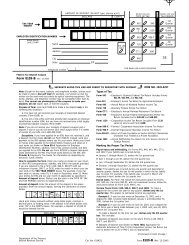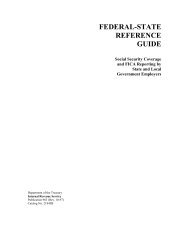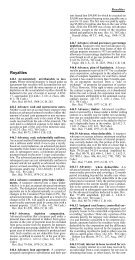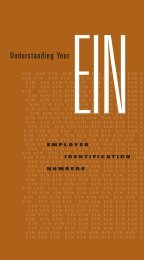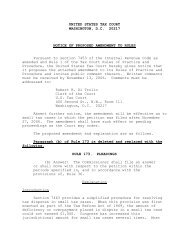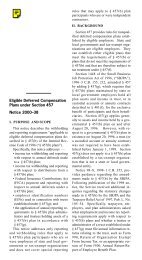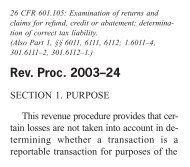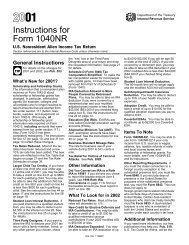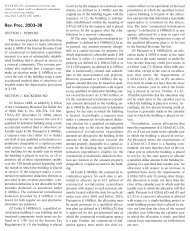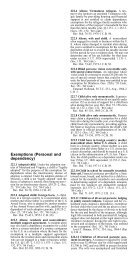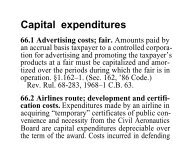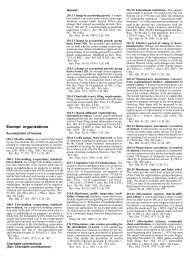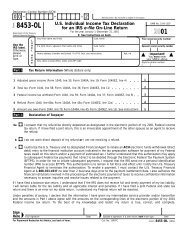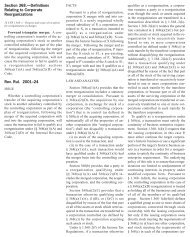Auto Dealerships - Audit Technique Guide - Uncle Fed's Tax*Board
Auto Dealerships - Audit Technique Guide - Uncle Fed's Tax*Board
Auto Dealerships - Audit Technique Guide - Uncle Fed's Tax*Board
Create successful ePaper yourself
Turn your PDF publications into a flip-book with our unique Google optimized e-Paper software.
the agent has made the correct analysis, but applied it to an incorrect account. Unless the<br />
designated representative is forthright regarding his or her knowledge of these accounts, the<br />
adjustment will disappear. A little time spent up front will save time and perhaps embarrassment<br />
later. Frequently, adjustments to balance sheet accounts result in an increase to taxable income.<br />
Remember that all income statement accounts are run through the balance sheet, but not all<br />
balance sheet accounts are run through the income statement. An example of entries in balance<br />
sheet accounts not affecting the income statement could be a loan to the shareholder eliminated<br />
through retained earnings. The entry involving a corporation is:<br />
Debit Retained Earnings<br />
Credit Loan to Shareholder<br />
According to this entry: Retained Earnings is an Equity account and loans to shareholder is an<br />
Asset account. If the loan to shareholder account is an asset and it is being increased as a result<br />
of a loan being made to shareholder, the account should be debited rather than credited to reflect<br />
an increase in the account’s balance. The cash account should be credited to reflect the decrease<br />
or payment of cash in that situation. If an examiner observes the above entry, they should be<br />
advised that further inquiry is necessary.<br />
The manufacturer’s statement should be secured in order to establish confidence in the taxpayer’s<br />
balance sheet accounts.<br />
Schedules M-1 and M-2 have definite balance sheet implications and should be reconciled and<br />
looked to for help in identifying what the taxpayer is doing. Differences between book and tax<br />
treatment of items should be questioned and taxpayers should be asked to submit their authority<br />
for any differences that do not appear to be compatible with generally accepted accounting or tax<br />
principles. This is also a place where deviations from reliable manufacturer statements may occur.<br />
Please see the appendix section of this <strong>Guide</strong> for a compendium of audit techniques relative to<br />
specific balance sheet accounts utilized in the auto dealership context.<br />
5-2



